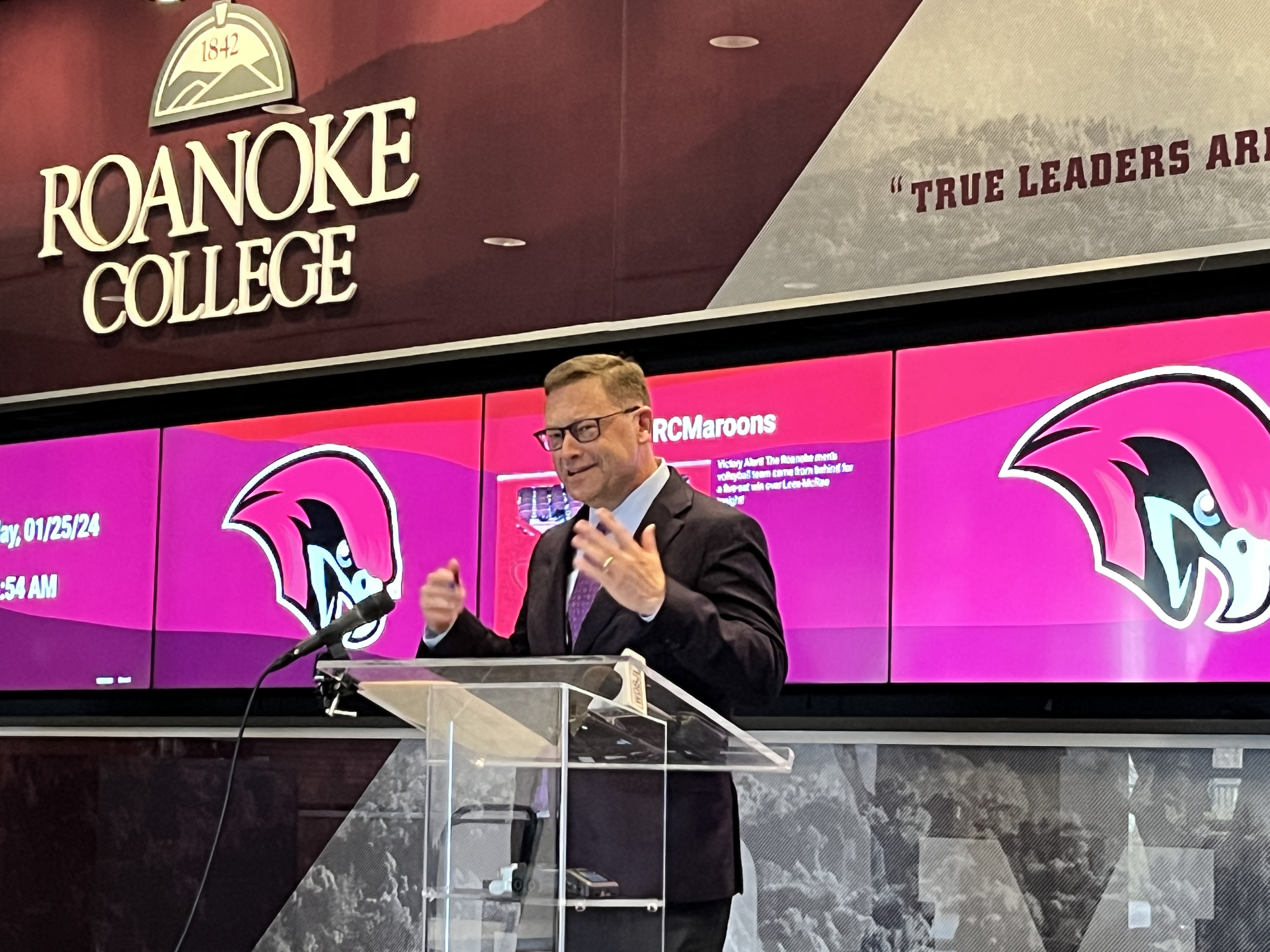Roanoke College has announced a new cannabis studies program that will launch this fall, offering two majors and a minor to prepare students for career opportunities in the growing field.
Two bachelor of science majors will be offered: one on the science of cannabis, the other centering around social justice and policy issues. A minor will also be available.
“Roanoke is positioning our graduates for career success in science, policy, business and community engagement” in the cannabis industry, President Frank Shushok said in a press conference Thursday.
The program is the first of its kind in Virginia, where recreational possession of marijuana is legal but retail sales remain prohibited (although the General Assembly is currently taking up several measures that could change the landscape).
[Want to know more about Virginia’s marijuana laws? We’ve compiled an explainer.]
Cannabis studies programs are offered at several schools on the East Coast, but many of those only offer a certificate as an add-on to another academic program.

After completing a core curriculum covering the societal, psychological, historical and botanical aspects of cannabis, students can choose one of two tracks to complete their bachelor’s degree: The cannabis science track will focus on botany, biology and chemistry, while the social justice and policy track will center around regulatory history and cannabis legislation. In both tracks, students will be required to complete an internship, independent study or research project.
The program was created through an internal development process that took more than a year. The new majors don’t need to be approved by the state’s higher education council or by the college’s regional accreditor because many of the courses needed for the new majors already exist at Roanoke College.
Biology professor DorothyBelle “DB” Poli, who has led the creation of the new program, said she met with faculty and administrators at several colleges and universities to learn about their cannabis studies programs early on in the planning process.
She also met with Roanoke College graduates who are working in the cannabis industry to learn about the types of jobs that are in demand or are anticipated to be in demand in the future.
The cannabis industry is expected to reach nearly $40 billion this year in the medical and recreational markets combined, according to research by Statista. Recreational cannabis is legal in 24 states, and in the first quarter of 2023, the Tax Foundation calculated that nine states brought in more revenue from cannabis sales tax (for medical plus recreational) than they did on sales of alcohol.
In Virginia, an eventual recreational market could create up to 18,000 new jobs and up to $300 million in annual state tax revenue, according to a 2020 report from the Joint Legislative Audit and Review Commission.
Nearly 60% of Virginians support allowing the retail sale of recreational marijuana, according to a survey released this week by the Wason Center for Civic Leadership at Christopher Newport University.
Keeping up with a fast-changing industry
While there are a number of medical marijuana dispensaries in Southwest Virginia, and manufacturing facilities in Alleghany County and Abingdon, Poli warned it would be a “tricky situation” to launch formal partnerships with local cannabis businesses.
The fast-changing regulatory landscape for cannabis means that the program will need to adapt to keep up with both industry trends and state law, Poli said Thursday. “We have to pay very close attention to every single law, every single conversation that occurs all the time,” she said, admitting that the process of developing the curriculum in a landscape that varies from state to state has been at times “bizarre.”
Roanoke College will only grow hemp varieties of the cannabis plant, which contain less than 0.3% of the psychoactive element THC. As laws change, the college could change that policy, but for now, Poli said that 0.3% THC cap ensures compliance with federal law.
Poli, who has a doctorate in plant biology, explained at the press conference that a lot of medicines come from plants, but there’s a shortage of plant scientists. Whether students choose careers that focus on uses of hemp or opt for jobs on the marijuana side of the industry, they’ll have the scientific preparation for those careers.
“We’re not telling them what to think,” Poli said. “We’re telling them how to think.”
Tanner Johnson, CEO of Elkton-based hemp grower Pure Shenandoah, said the program launching at Roanoke College will help meet the hiring needs of a variety of employers, in both the public and private sectors. But right now, it’s hard to tell which roles will be in highest demand in Virginia, he said.
“There is a lag in the system right now, and it’s hard to tell when adult use will go live, which will impact the number of jobs and internships available upon graduation,” Johnson said. He also serves on the executive board of the Virginia Cannabis Association, a nonprofit organization that advocates for an adult use market in the commonwealth.
“These majors will have an evolution to them as the industry matures,” Johnson said. But by establishing its programs now, Roanoke College is setting itself up to have what he describes as “a major positive impact in the medium and long run” for Virginia’s cannabis industry.



